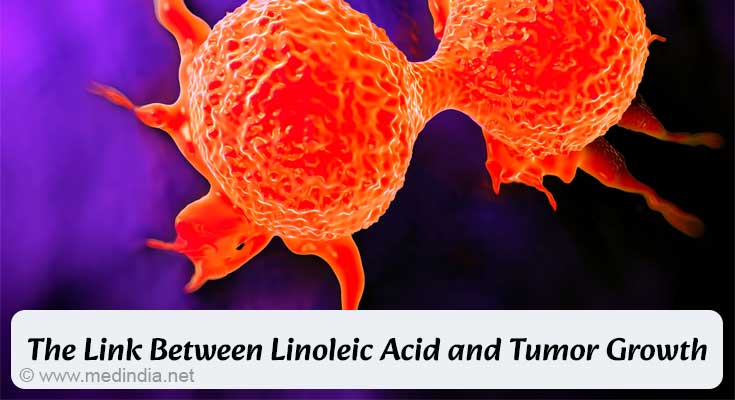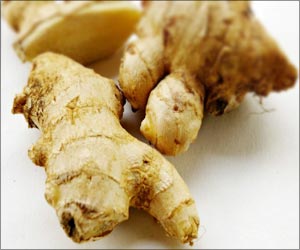Linoleic acid-rich foods like pork, eggs, and soybean oil may fuel triple-negative breast cancer.
- Omega-6 linoleic acid may accelerate triple-negative breast cancer growth
- High linoleic acid intake activates mTORC1, a key tumor growth pathway
- FABP5 protein could serve as a biomarker for targeted treatment strategies
Omega-6 fatty acid promotes the growth of an aggressive type of breast cancer
Go to source).
Excess omega-6 #fattyacids may fuel aggressive #breastcancer growth! #omega6 #linoleicacid #healthyeating #medindia’
How Big Is the Risk?
- More than 2.3 million women worldwide are diagnosed with breast cancer annually.
- Triple-negative breast cancer accounts for 10-15% of all breast cancer cases.
- TNBC lacks targeted treatments, making it more difficult to manage.
- The study found that linoleic acid activates tumor growth by triggering the mTORC1 pathway, a major driver of cancer cell metabolism.
How Does Linoleic Acid Fuel Cancer Growth?
A Key Protein Behind the Risk
The researchers discovered that linoleic acid binds to a protein called FABP5, which is found in higher concentrations in TNBC cells compared to other breast cancer types. This binding activates mTORC1, a pathway that promotes cancer cell survival and rapid growth.
A Mouse Model Confirms the Findings
In a controlled study, mice with TNBC were fed a high-linoleic-acid diet. The results? Increased tumor growth and higher levels of FABP5 activation, confirming the role of diet in cancer progression.
What This Means for Your Diet and Health
Are Omega-6 Fatty Acids All Bad?
Linoleic acid is an essential fatty acid, meaning your body needs it for proper function. However, Western diets are excessively high in omega-6s due to processed foods, fried snacks, and vegetable oils. While omega-3 fatty acids (found in fish and flaxseeds) have anti-inflammatory properties, omega-6s can contribute to chronic inflammation—a known factor in cancer development.

Should You Change Your Diet?
While this study doesn’t suggest eliminating omega-6s entirely, it highlights the importance of balance. Experts recommend:
- Reducing processed foods high in vegetable oils
- Incorporating more omega-3-rich foods like fatty fish, walnuts, and chia seeds
- Consulting a healthcare provider before making drastic dietary changes, especially if you are at risk for breast cancer
Beyond Breast Cancer: A Potential Link to Other Diseases
The study’s findings could extend beyond breast cancer. Researchers are now investigating whether the FABP5-mTORC1 pathway plays a role in prostate cancer, obesity, and diabetes. If proven, this could reshape dietary guidelines for multiple health conditions.The Future of Cancer Prevention and Treatment
This groundbreaking research suggests that dietary interventions could become a critical part of cancer management. Additionally, FABP5 could serve as a biomarker, helping doctors personalize treatment for TNBC patients (2✔ ✔Trusted SourceOmega-6 Fatty Acids Linked to Aggressive Breast Cancer Growth
Go to source).
Scientific breakthroughs like this highlight the deep connection between diet and disease. As research continues, it’s becoming clear that what we eat can influence our cancer risk more than we ever imagined.
Could a simple dietary shift reduce cancer risks? Stay informed, stay proactive, and make every meal count for your health.
References:
- Omega-6 fatty acid promotes the growth of an aggressive type of breast cancer - (https://www.eurekalert.org/news-releases/1078854)
- Omega-6 Fatty Acids Linked to Aggressive Breast Cancer Growth - (https://bioengineer.org/omega-6-fatty-acids-linked-to-aggressive-breast-cancer-growth/)
Source-Medindia
















